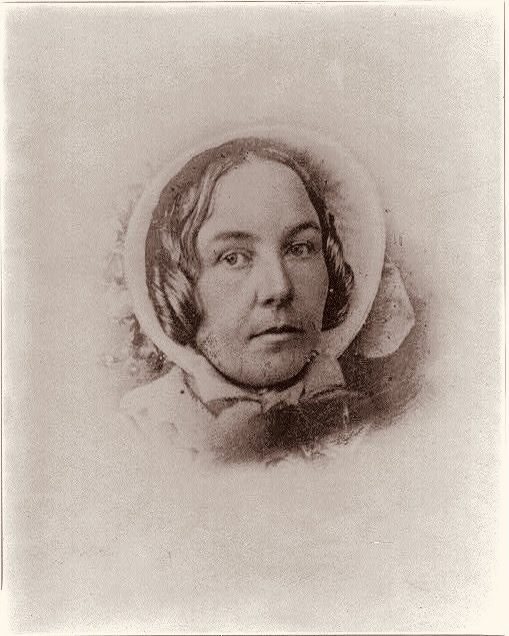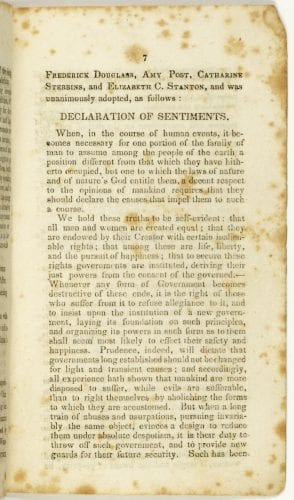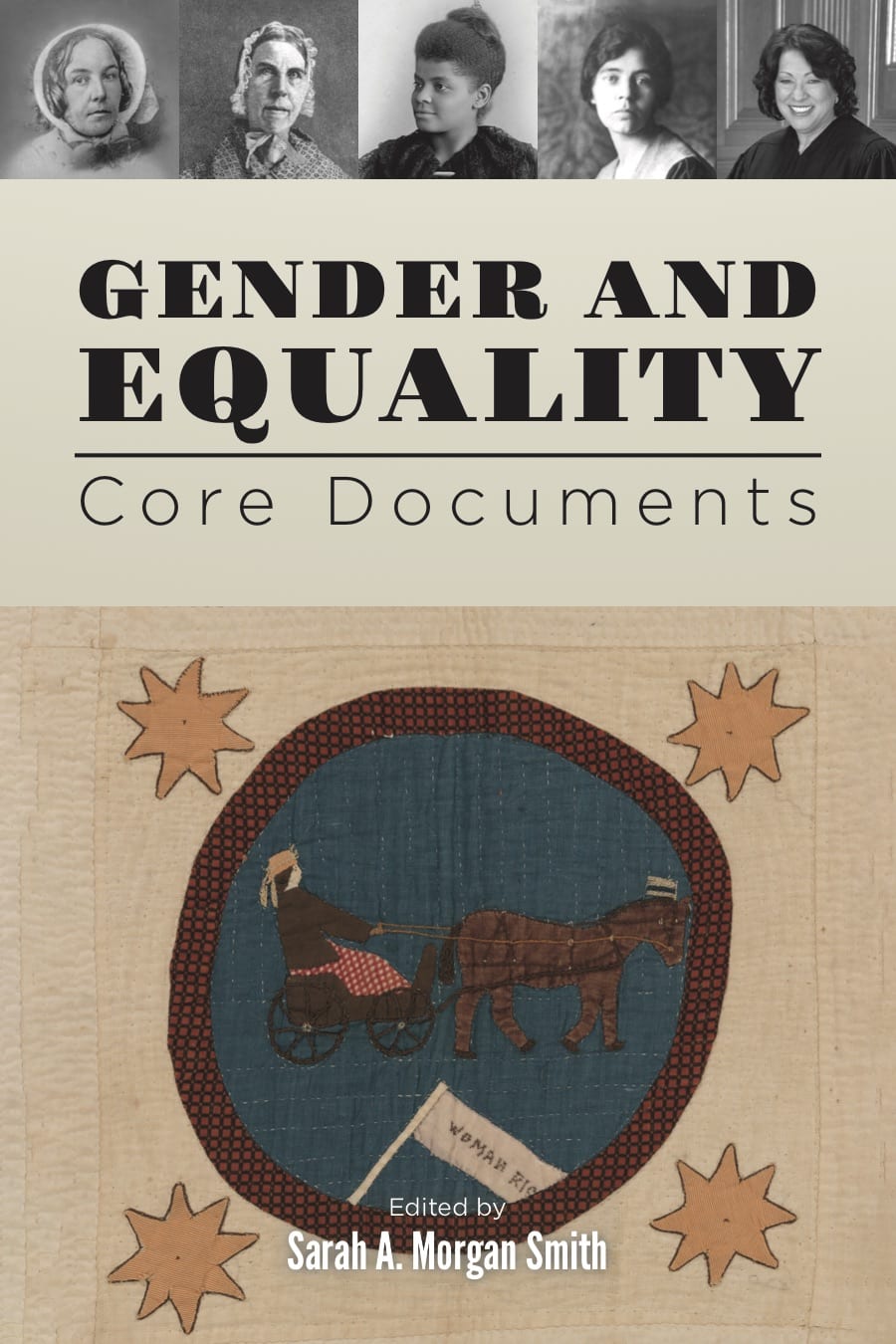
Remembering Seneca Falls
This blog post, written by faculty member Sarah Morgan Smith, was first posted on July 16, 2020. We rerun it today in honor of the 175th anniversary of the first women’s rights convention, held in Seneca Falls, NY on July 19th, 1848.

172 years ago this Sunday, Lucretia Mott, Elizabeth Cady Stanton and over a hundred other reform-minded men and women gathered in the sleepy village of Seneca Falls, New York, for what would be the first national woman rights convention. As part of the proceedings, those in attendance adopted a Declaration of Sentiments, a summary statement of the grievances of American womanhood. Modeled conspicuously on the Declaration of Independence, the text asserts not only that women have been unjustly treated by men but that they are entitled by “the laws of nature and nature’s God” to “assume among the people of the earth a position different from that which they have hitherto occupied”–a position, that is, of equality with men.
Its publication brought the convention attendees great public attention—much of it negative—and launched Stanton on her first public speaking tour as an apologist for what was about to become an organized woman’s rights movement.

In her speech, which she apparently gave multiple times in various venues, Stanton alludes to the still-unusual nature of a woman speaking before a mixed assembly of men and women. Yet despite her own sense of unease as a speaker, she declared herself to be moved “by a sense of right and duty,” to address the pressing issue of what she describes as “the question of woman’s wrongs.” Nor could she possibly have delegated the task to a male colleague, she told her audience, for “woman herself must do this work; for woman alone can understand the height, the depth, the length, and the breadth of her own degradation. Man cannot speak for her, because he has been educated to believe that she differs from him so materially, that he cannot judge of her thoughts, feelings, and opinions by his own.”
Note that Stanton’s assertion is not a plea for a politics based on identity or personal characteristics. Rather, she subtly challenges the popular understanding that men and women are so different as to require “separate spheres” of influence and dominion by reminding her audience of the shared humanity of the sexes. In other words, if the men around her in 1848 had correctly understood that women were their equals in human nature and dignity, then Stanton might have potentially delegated the role of public speaker on behalf of women’s rights. (On the other hand, if the men of America had understood that women were their equal in nature and dignity, she wouldn’t have needed to give the speech in the first place.) In effect, Stanton says that it is only men’s prejudice that keeps women from being heard and understood.
Stanton’s claim that equal and free human persons can always understand the minds of one another is precisely the reason we at Teaching American History study the past using historical documents:
If we can understand the documents of the past, then our minds are free from the present. If they are free from the present, then they are also free from the limits of gender, race and socio-economic status that characterize us here and now. That our minds are free from these things means that we share a common humanity. It means, in the most important sense, that all men are created equal.
-Teaching American History, Statement of Principles
In other words, when we engage in historical study in this way, we affirm our commitment to the core principle’s of the American founding creed as outlined in the Declaration of Independence in a way that also allows us to understand the many diverse voices of our national past as relevant and meaningful in our own time… and to learn from them.
Stanton, therefore, could not have been more prescient, when she wrote:
Among the many important questions which have been brought before the public, there is none that more vitally affects the whole human family than that which is technically called Women’s Rights. Every allusion to the degraded and inferior position occupied by women all over the world has been met by scorn and abuse. From the man of highest mental cultivation to the most degraded wretch who staggers in the streets do we meet ridicule, and course jests, freely bestowed upon those who dare assert that woman stands by the side of man, his equal, placed here by her God, to enjoy with him the beautiful earth, which is her home as it is his, having the same sense of right and wrong, and looking to the same Being for guidance and support. So long has man exercised tyranny over her, injurious to himself and benumbing to her faculties, that few can nerve themselves to meet the storm; and so long has the chain been about her that she knows not there is a remedy.…
Our hope is that by continuing to engage with the past in this way, American citizens in the present will both recognize their own freedom and equality and respect the freedom and equality of others.
For more on the Seneca Falls convention and the ideology behind the fight for full gender equality throughout American history, please see our Core Document volume, Gender & Equality, edited by Sarah Morgan Smith.




